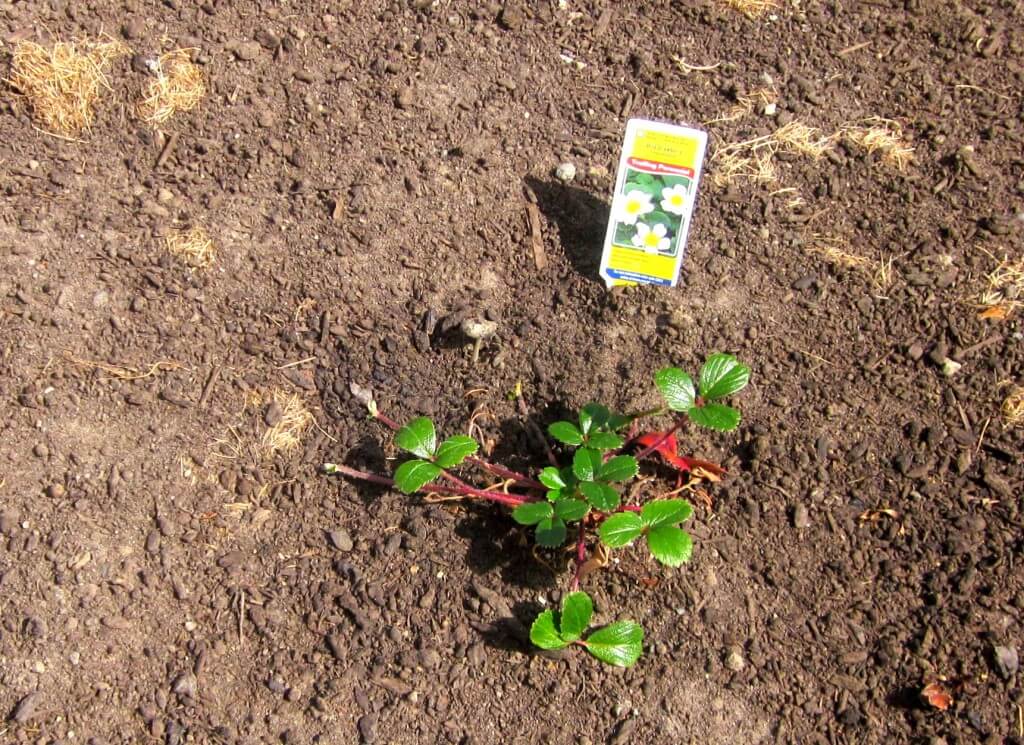-
The Wild Garden, Part 2 – August 2012

Despite the chaos, beauty grows within the wild.
“I have other sheep, which are not of this fold; I must bring them also, and they will hear My voice; and they will become one flock” (John 10:16)

It is true, some of our plants have disease, rot and are in danger of death.
But blight just gives an an opportunity to B- LIGHT.
“Blessed are you who mourn, for you will be comforted.” Luke 6:24
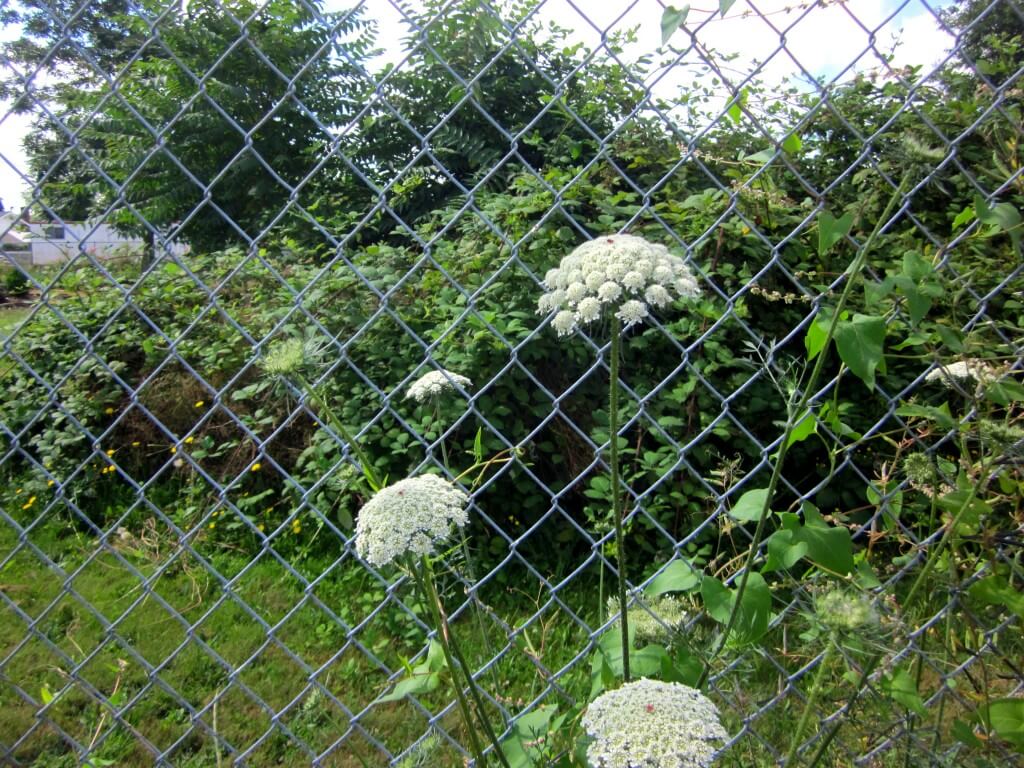
From our neighbor’s point of view, all we are growing are thorns and unkempt horrors.
“When this son of yours comes back after squandering your money on prostitutes, you celebrate by killing the fattened calf!”(Luke 15:30)
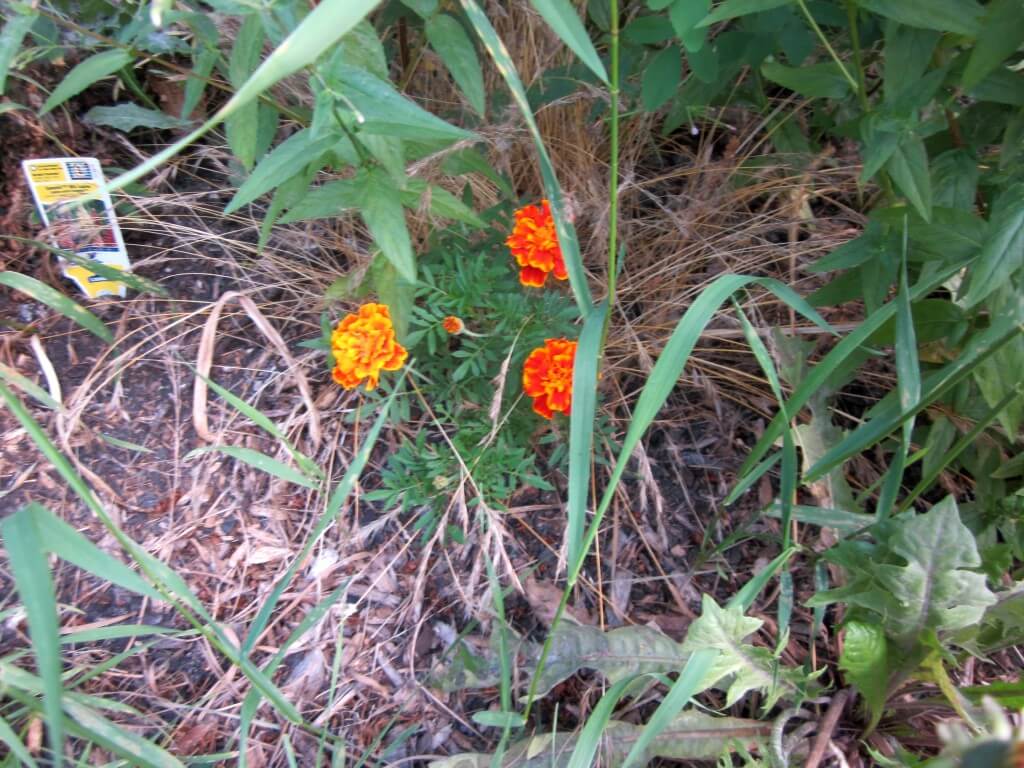
Many are concerned that our wild garden will surround and engulf their cultivated garden.

But they don’t see the beauty that grows, even thrives in the wild garden.
The wild garden and the cultivated one can live side by side.
“In a great house there are not only vessels of gold and of silver, but also of wood and of earth; and some to honour, and some to dishonour.” (2 Timothy 2:20)
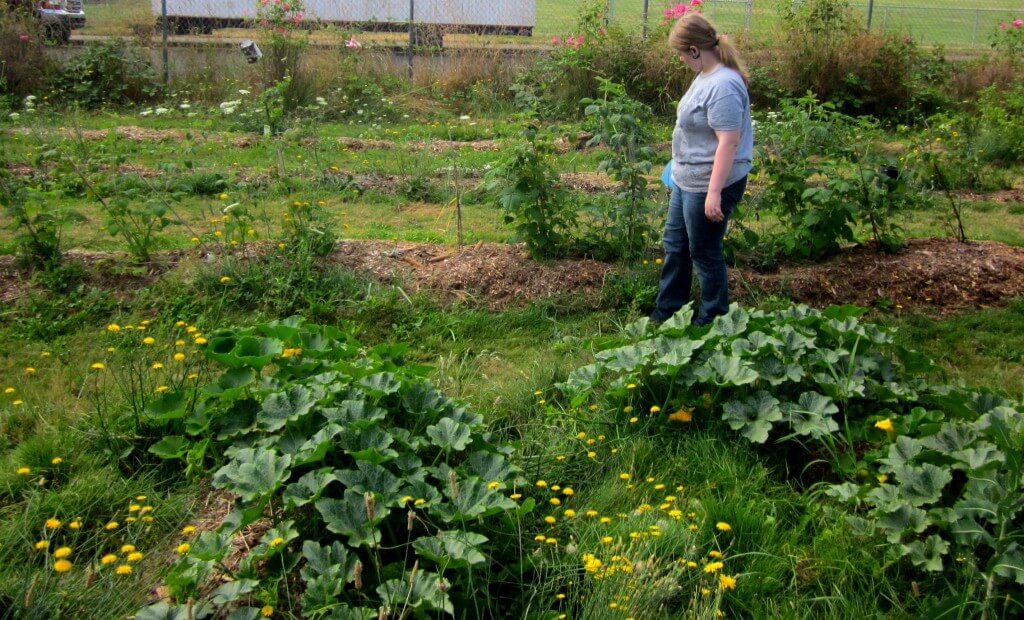
We carefully cultivate our wild garden, encouraging the best fruit to be produced.
We water, feed, and provide a place to grow, but it is God and the plants themselves that provide the fruit.
We just provide the context.
“Neither the one who plants nor the one who waters is anything, but God who causes the growth.” (I Corinthians 3:7)
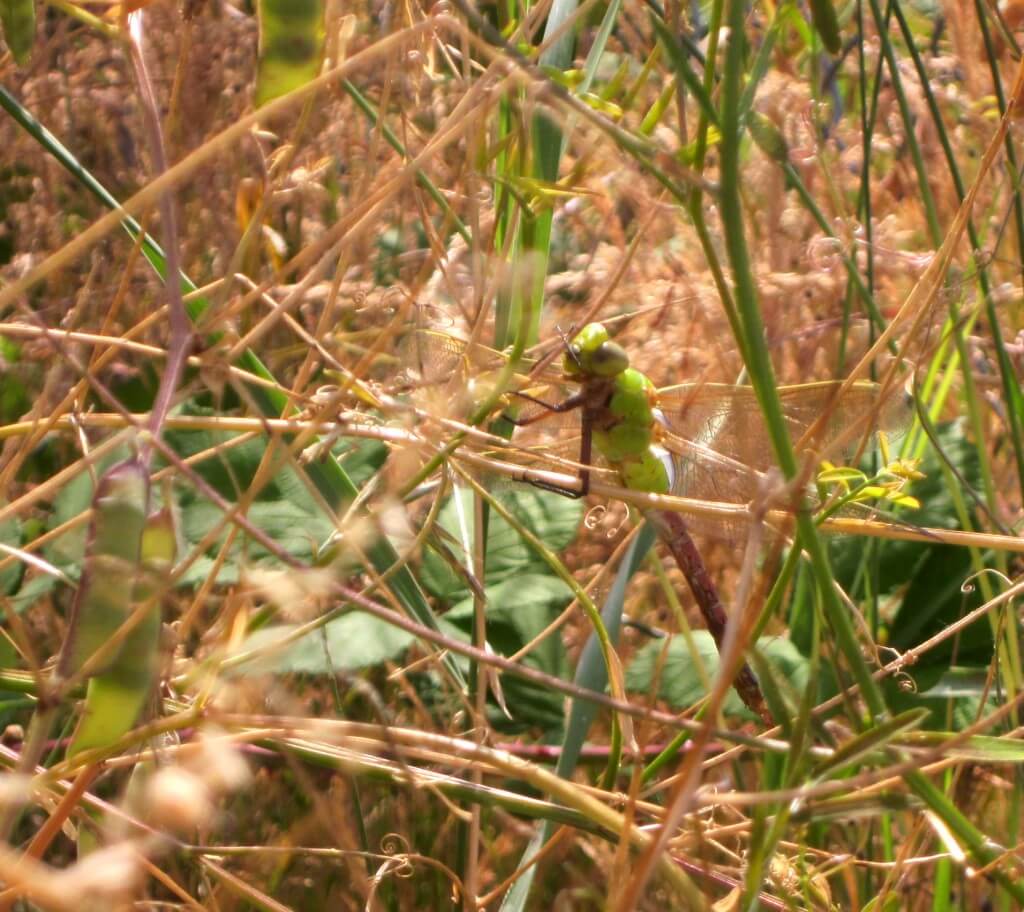
Sometimes we get a surprise visitor.
This visitor may seem alarming at first– will they cause harm to the plants, or will they help?
In the end, the visitor becomes another that we feed and cultivate.
“The man who had been demon-possessed was imploring Him that he might accompany Him.” (Mark 5:18)

We look carefully and we find nourishment has grown.
Every plant has their own joy to bring to the community.
“Because of the joy awaiting him, he endured the cross, disregarding its shame.” (Hebrews 12:2)
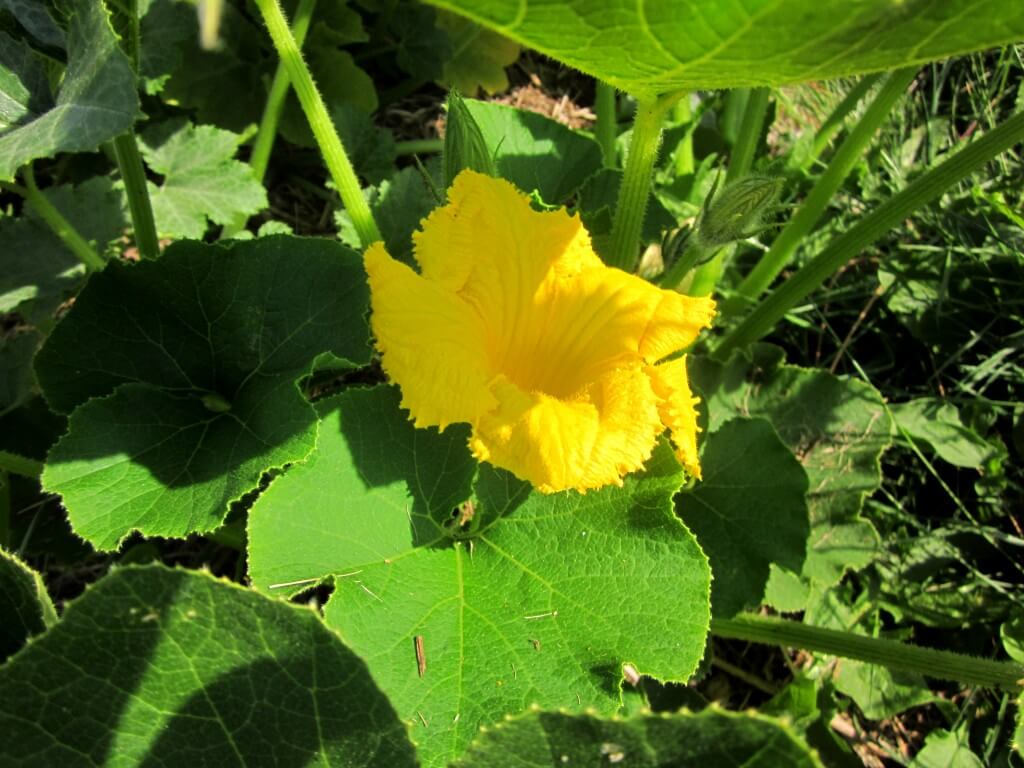
Despite the struggle, despite the stress, despite the occasional pain,
the beauty of life of each plant is worth it.
“In Christ Jesus you who formerly were far off have been brought near.” (Ephesians 2:13)
-
The Wild Garden, Part 1 – August 2012
Most people want to begin an already cultivated garden.
They buy their plants from nurseries, they have carefully tended soils,
they might even control the climate and atmosphere.
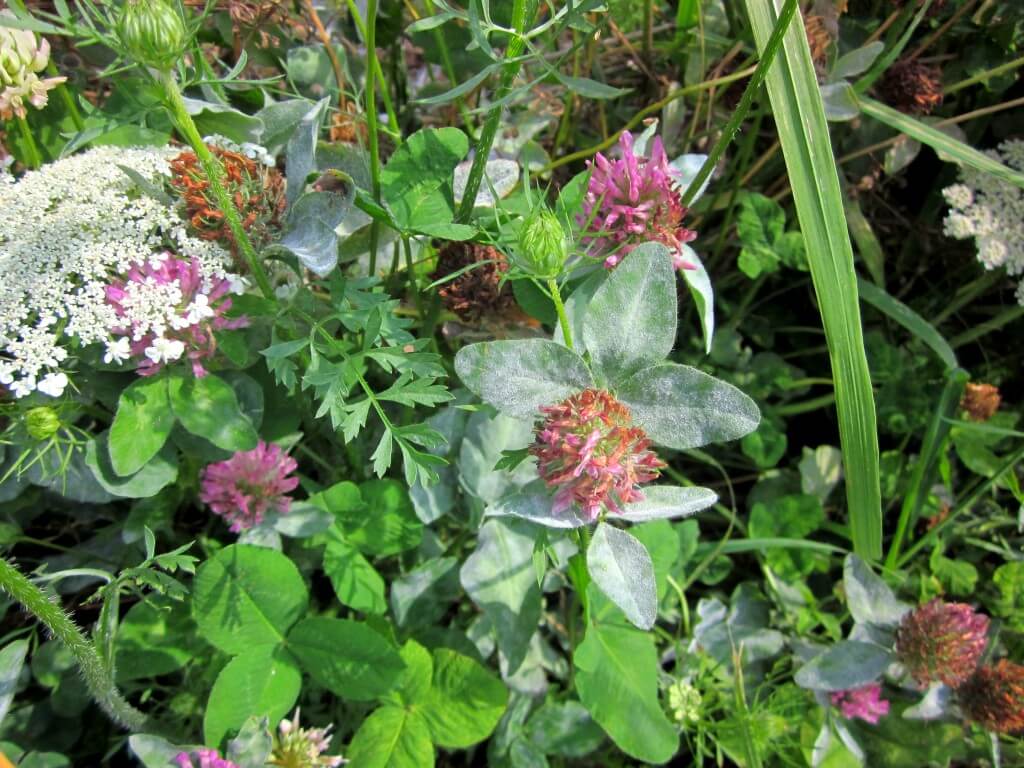
At Anawim, we cultivate the Wild Garden:plants springing out of nowhere, growing up any which way,
chaos barely tamed, sometimes completely untamed,
seemingly free, yet always in crisis.
The Son of Man has come to seek and to save that which was lost.” (Luke 19:10)
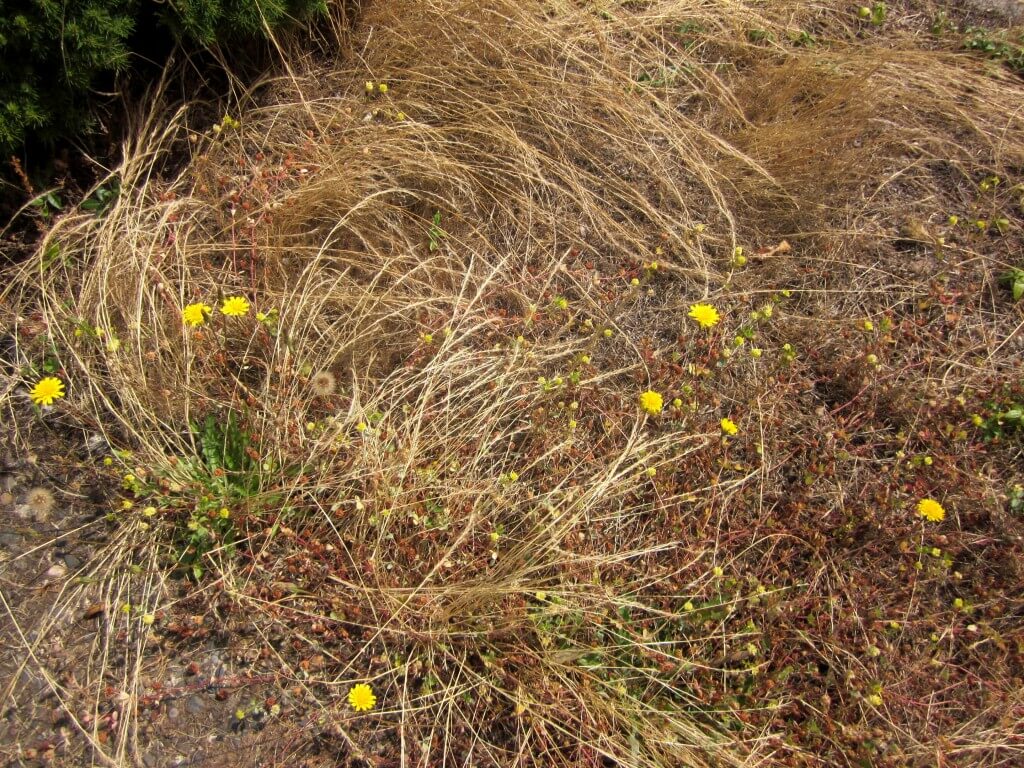
A wild garden doesn’t look like much when you begin.It is dry, hard, unkempt, and the ground seems unworkable.
“Behold, the sower went out to sow; as he was sowing, some seed fell beside the road, and the birds came and ate it up. Other seed fell on the rocky ground where it did not have much soil…” (Mark 4:3-5)
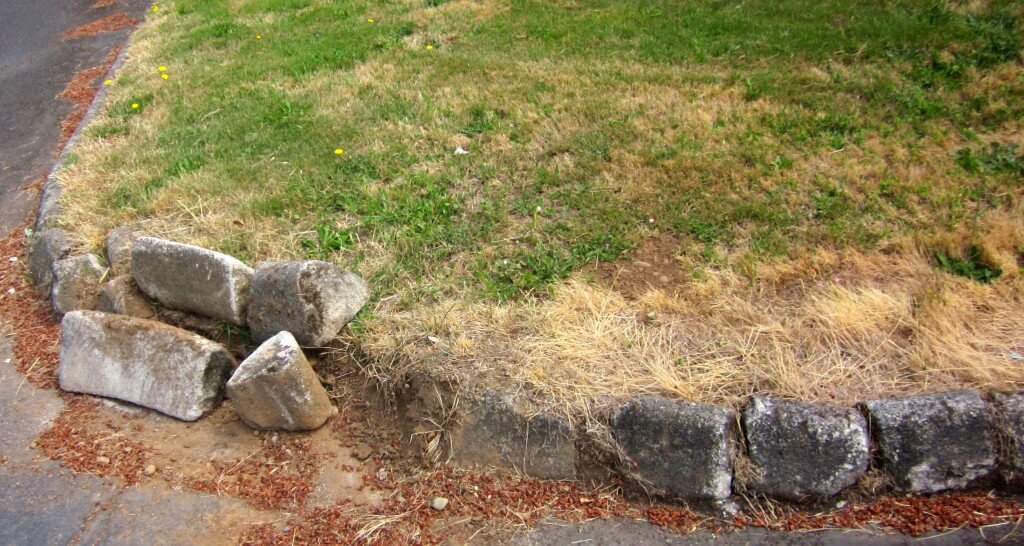
Not only is the garden wild, but the plot is in desperate need of repair.On the surface, it looks chaotic and impossible to work with.
But with God, nothing is impossible.
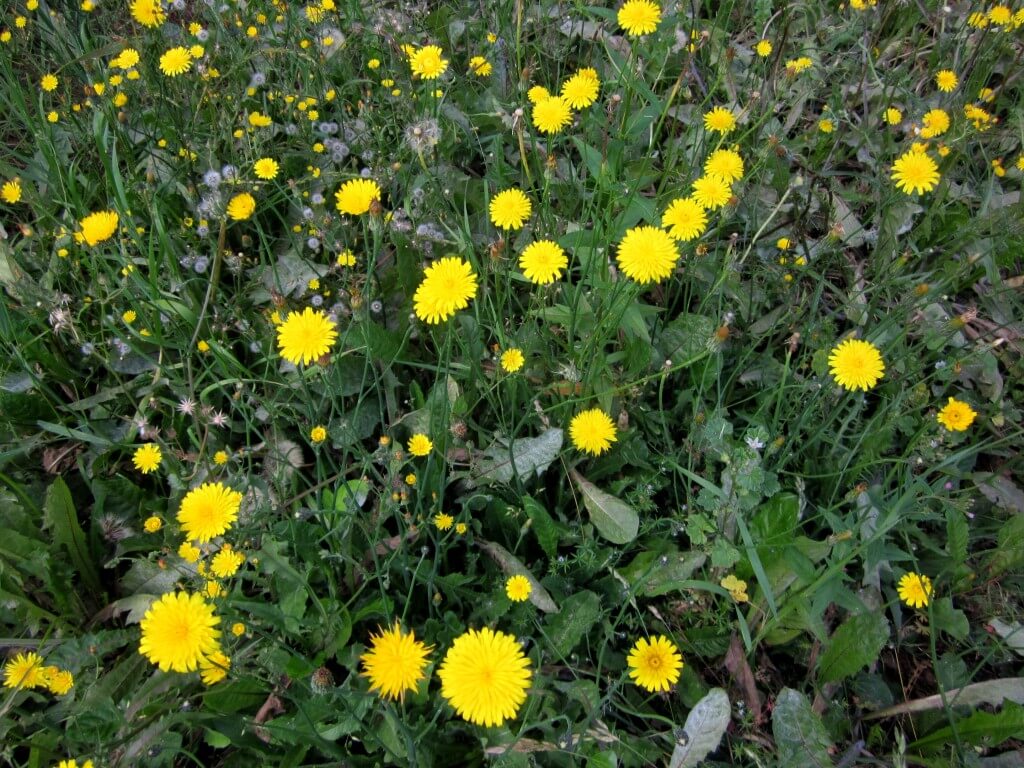
If you look carefully, even the garden full of weeds can display remarkable beauty.“Her sins, which are many, have been forgiven, for she loved much.” (Luke 7:47)
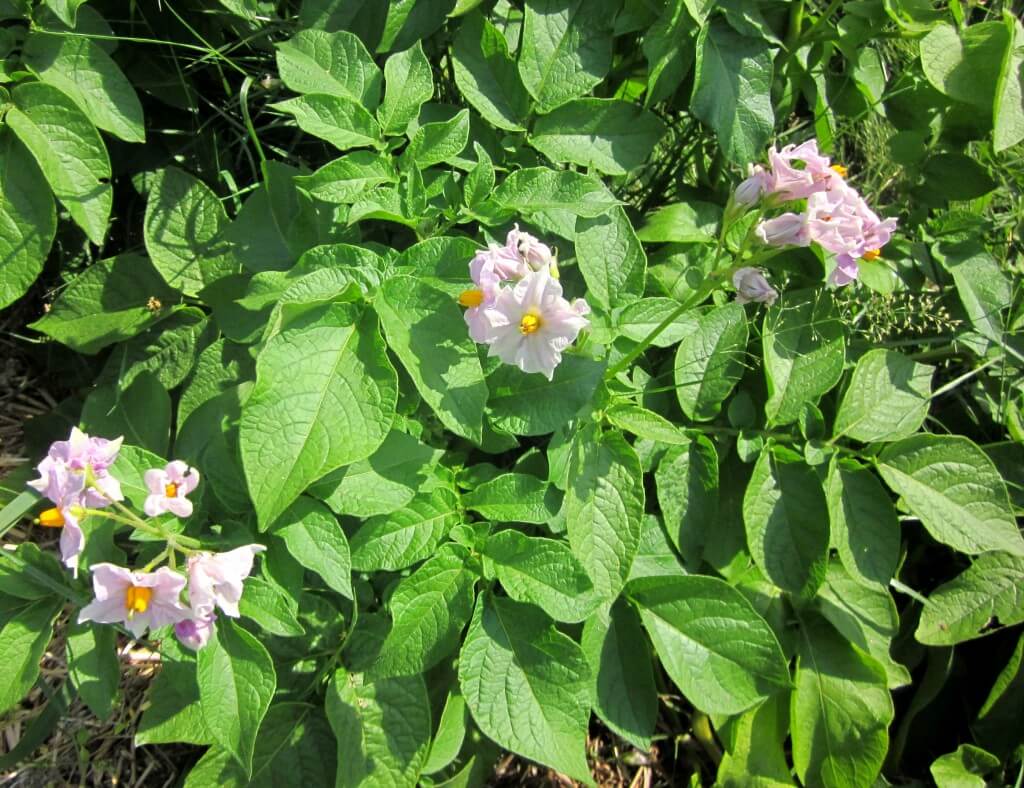
We take the cast-offs, like these potatoes, plant them, and give them a home.And in that context, they flourish.
“I did not come to call the righteous, but sinners.” (Mark 2:17)
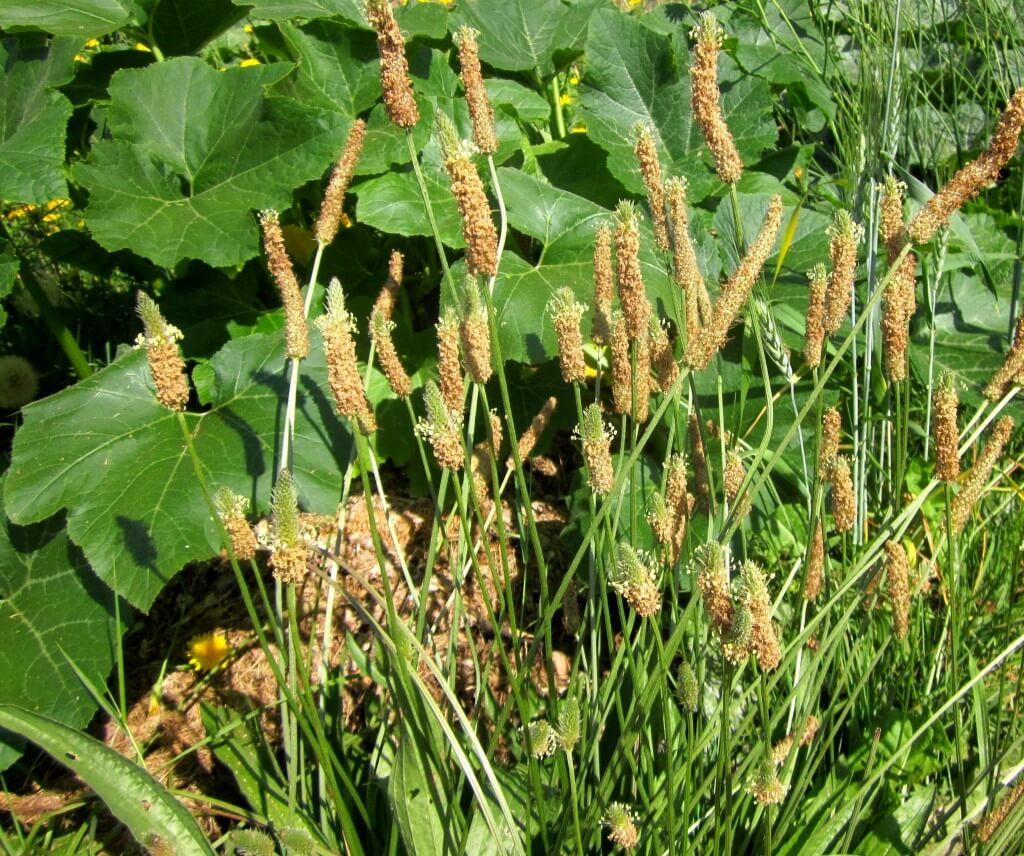
We must not despise the wild…
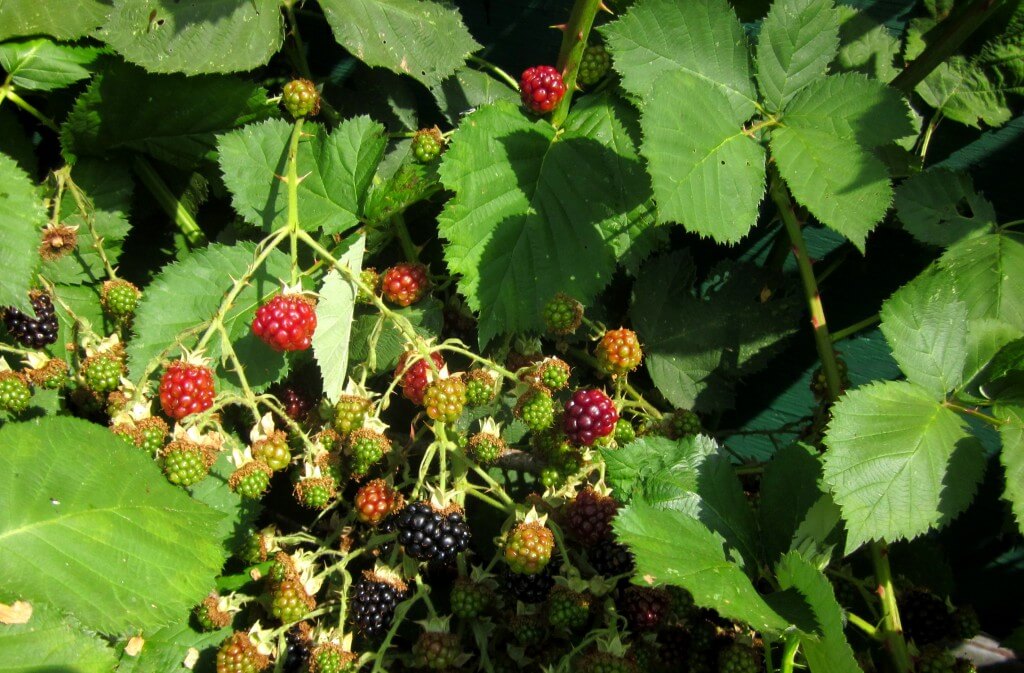
…for they will grow their fruit in due season.Do not despise the day of small things, for the LORD rejoices to see the work begin. (Zechariah 4:10)
All pictures were taken by Steve Kimes in the gardens of Sanctuary. Some of the gardens are wild, some are not. But almost all of the plants are cast-offs in one way or another.
No plants were harmed in the making of this photo essay.
-
Not In My Neighborhood
A neighbor said, “
 I know this sounds like a cliché, but why do they have to be in our neighborhood?”
I know this sounds like a cliché, but why do they have to be in our neighborhood?”Um, yeah. That is a cliché. And there’s two reasons it’s a cliché: one, it is often repeated; and two, it shows an unthinking response.
The thing is, no one who is in a housed community wants the homeless in their neighborhood. The businesses don’t want them in their community, the suburbs don’t want them, downtown doesn’t want them, residence areas don’t want them, industrial areas don’t want them, and even if the homeless find unused wooded areas, they are often found and then moved out of there.
The point is, no one wants them anywhere near their area.
But they have to be SOMEWHERE. Homeless people exist. They can’t just disappear and take up no space at all. It has been tried to make homeless people illegal. But if you make them illegal, you just fine people who can’t pay the fines. You make it illegal for certain people to exist. That doesn’t work. And if we think about that for a second, we know it doesn’t work.
So, how about this. Instead of telling the homeless to disappear, why don’t we give them places where they can exist. Places that will keep an eye on them and help them. Places that will care for them and treat them with respect. Places that will encourage them to use resources that will (eventually) help them to get themselves off the street. Places that will work with the community and work to make peace between the homeless and the community.
We call that place a church. Not just any kind of church, obviously, but a church that does what Jesus did when he was on earth—feeding the poor, welcoming the outcast and making peace. Really, that’s what churches are supposed to do.
-
Why Can’t the Homeless Just Act Normal?
This is the first of a series of responses to questions given to us by neighbors of our facility in Gresham.
 This is the same question that many ask of immigrants or of people of other races. In the end, we want all people to recognize our values and mores and to leave us alone to live them. What we forget is that when we live in a community with other people, to insist we live by our mores means that we insist that other kinds of people live according to our standards as well.
This is the same question that many ask of immigrants or of people of other races. In the end, we want all people to recognize our values and mores and to leave us alone to live them. What we forget is that when we live in a community with other people, to insist we live by our mores means that we insist that other kinds of people live according to our standards as well.There isn’t a “normal”. There is how we live. And there is nothing wrong with wanting to live in the way we consider “normal”. Unless our “normal” conflicts with another “normal” and we demand that everyone in our community live according to our “normal”. Suppose a large group of immigrants from Africa moved into your neighborhood and demanded that everyone tear down the fences that separated everyone’s backyards. There’s nothing wrong with having fences, nor is there anything wrong with not having fences. The only problem is when one group insists that everyone else lives like they are used to.
Even so, homeless people live differently than housed people. Some of this is due to survival mechanisms. Some of this is just different expectations of what is “normal”. Some of this is because they are stressed and some are mentally ill.
If you work with the leadership of the facilities that assist the homeless, compromises between the two different kinds of “normal” can be reached, so everyone can live contentedly. But to demand that the homeless or mentally ill suddenly have middle class cultural standards is unreasonable, even as it would be unreasonable to ask African neighbors to “act white.”
-
Returning to Anawim
This is David. He was on the street for years but is now in his own housing and is doing well. He came back to say thank you and to bring a donation of clothing to those who have greater needs than he.
This is what he said:
“I was on the street for years. I got a job as a cook, but recently had a shoulder injury on which I had three surgeries. I can’t lift anything over 10 lbs with that arm anymore. Nevertheless, I have an apartment, a car, and I’m in training for a new occupation. I just wanted to make sure to say thank you to those who helped me get help. You are definitely one of those I need to thank.”
Do you want to say thank you to God for His provision when you were in need? Write it out here: https://hogansheroesfanclub.com/groups/anawim-portland/forum/topic/some-thanks/
3733 N Williams Ave
Portland, OR 97227
503.888.4453
AnawimCC@gmail.com
Ministry Locations and Times »

